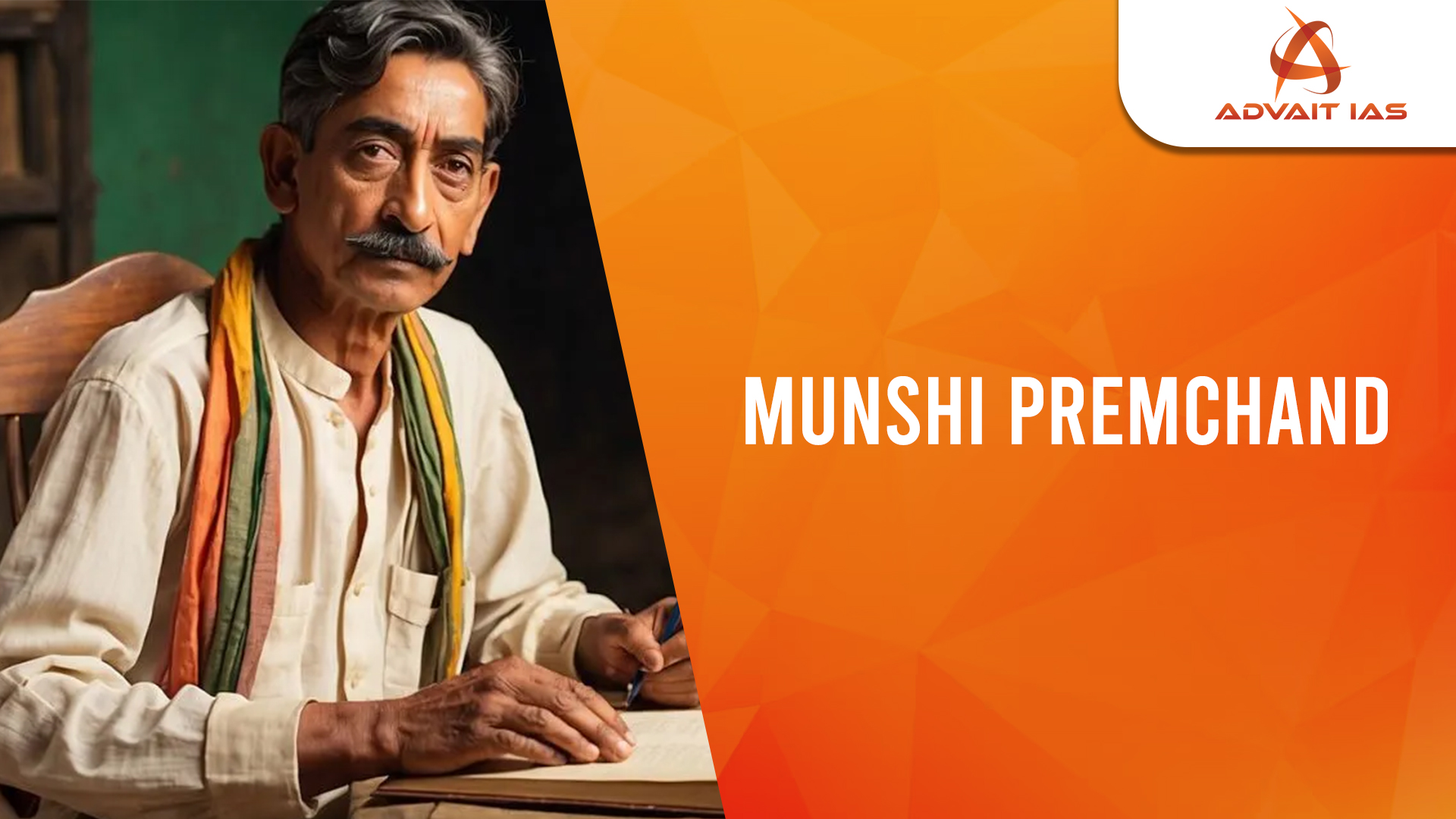Munshi Premchand (Upanyas Samrat), a pioneer of modern Hindi and Urdu literature, is renowned for his socially conscious works that resonate with readers across generations.
Early Life and Education
- Birth and Background: Born as Dhanpat Rai Srivastava on July 31, 1880, in Lamahi near Varanasi, he later adopted the pen name “Premchand.”
- Education: He began his studies at a local madrasa, learning Urdu. Despite financial struggles, he continued his education and became proficient in English, Persian, and Hindi.
Literary Career and Achievements
- Transition to Writing: Premchand began his writing career in Urdu under the pen name “Nawabrai.” In 1905, following a british government order to burn his politically sensitive writings, he adopted the name “Premchand” and started writing in Hindi.
- Contribution to Hindi-Urdu Literature: Premchand transformed the Hindi-Urdu novel into a mature genre, earning the titles “Upanyas Samrat” (Father of the Hindi Novel). His works were known for their simplicity, accessibility, and deep social commentary.
Notable works of Munshi Premchand
- Godaan (The Gift of a Cow) – Considered one of his greatest works, it reflects rural poverty and the plight of farmers.
- Kafan – A poignant short story about poverty and moral decay.
- Shatranj Ke Khiladi (The Chess Players) – A short story set in the backdrop of British colonialism in India.
- Idgah – A touching short story about a poor boy’s love and sacrifice for his grandmother.
- Nirmala – A novel addressing the issues of child marriage and dowry.
- Sevasadan – A novel exploring the condition of women and societal issues.
- Gaban – A novel dealing with greed and moral downfall.
- Premashram – Focuses on class struggle and peasant issues in rural India.
- Rangbhoomi – A novel exploring the plight of the oppressed and marginalized.
- Bazaar-e-Husn – Examines the lives of women and their roles in society.
Celebrations such as Munshi Premchand Jayanti (July 31) and various literary festivals honor his legacy and contributions.






